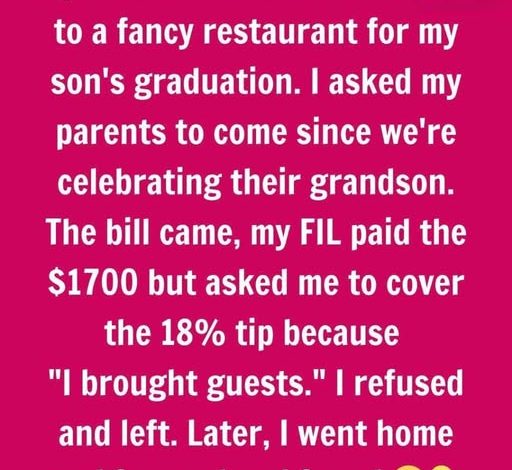I Refused to Tip $300 After Being Invited to a Dinner

Mark’s son’s graduation was a momentous occasion, a time for joy and celebration. However, the festive atmosphere quickly soured when Mark’s in-laws hosted a lavish dinner at a prestigious restaurant, inviting twelve family members to partake. Eager to share this special moment with his own parents, Mark extended an invitation to them as well.
This seemingly innocuous gesture, however, ignited an unexpected conflict. Mark’s father-in-law, upon learning that Mark had brought additional guests, requested that Mark cover the 18% gratuity on top of his $1700 share of the bill. Feeling that this was an unreasonable expectation, Mark politely but firmly declined.
The repercussions of his decision were swift and severe. Later that evening, Mark received a chilling text message from his wife: “Forget about me for a while. For a few hundred dollars, you ruined our only son’s celebration and made me look foolish in front of my whole family.”
Returning home, Mark found his room nearly empty – his wife had taken most of her belongings and moved out. Days have passed, and she remains unreachable, refusing to answer his calls.
While acknowledging his wife’s distress, Mark feels deeply hurt and misunderstood. He believes that his wife should have supported his stance, especially considering that his father-in-law treated his parents as unwelcome guests, a gesture that he found deeply insulting.




